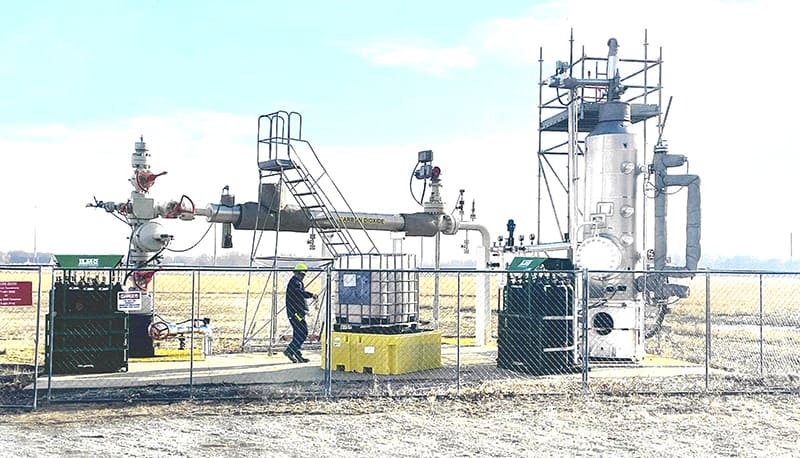330-476-6343 | [email protected]

330-476-6343 | [email protected]

Carroll County business and community leaders and interested residents are invited to attend a special briefing on carbon capture, hydrogen production and related infrastructure development activities.
The briefing is sponsored by the Carroll County Farm Bureau and will be held Feb. 28 at 6 p.m. in the Carrollton High School Performing Arts Center.
The program will be facilitated by Dale Arnold, Ohio Farm Bureau Federation (OFBF) director for Energy, Utility and Local Government Issues.
“Two major development initiatives are centered in eastern Ohio,” Arnold said. “One focuses on Carbon Capture, Utilization and Storage (CCUS). Carbon dioxide is removed from industrial sources, and is transported, injected underground, stored for future use or will be subject to long-term geologic sequestration.
Another is being developed as part of one of the nation’s Regional Clean Hydrogen Hub (H2Hubs). The Appalachian Hydrogen Hub spans across parts of West Virginia, Ohio and Pennsylvania and uses the region’s access to natural gas to produce, store and transport hydrogen.”
Both projects will leverage local shale oil and gas production experience. However, while many key infrastructure requirements are similar (pipeline installation, facility placement, drilling, plant management, etc.), there are a variety of newer issues that will need to be addressed.
“Farmers, rural residents and local government leaders are being approached to support initiatives, sign legal documents and provide additional project resources. While it sounds like the return of oil and gas activity encountered a few years ago, many of the agreements currently offered to landowners are different,” said Trevor Kirkpatrick, organization director of the Carroll County Farm Bureau.
Arnold will discuss infrastructure requirements and related production activities in Carroll County, energy market trends, remediation standards, as well as regulatory agencies governing different types of energy development.
Issues concerning eminent domain and farmland preservation will be explored, as well as what landowners should consider as they finalize agreements.
“There are a variety of projects being developed in the community, all with their own regulatory and procedural structures,” said Kirkpatrick. “Many folks have questions. Community stakeholders want to know how each project developer will address soil and water conservation issues, land remediation standards, use of local roads and safety procedures.”
When asked to sign complex agreements, landowners have the right to have their legal counsel examine all materials. Community members are realizing that many aspects of a new energy development project are not necessarily boilerplate; there are still a variety of individual landowner and community decisions to be made. Local input is important.
Interested in a monthl roundup of stories? Enter your email to be added to our mailing list.
